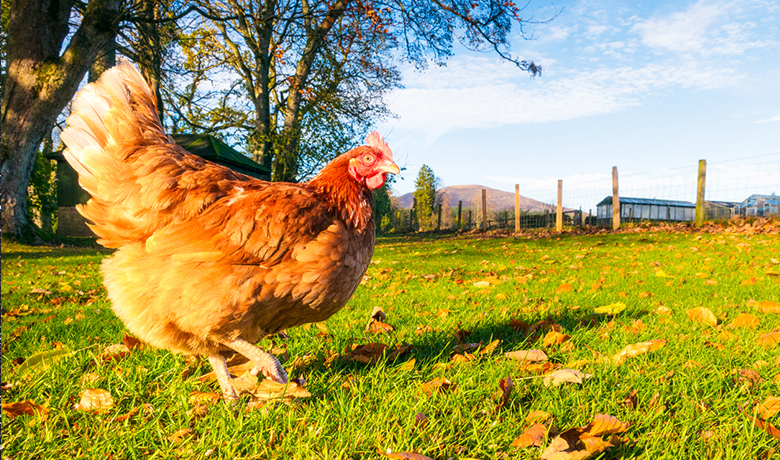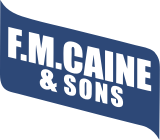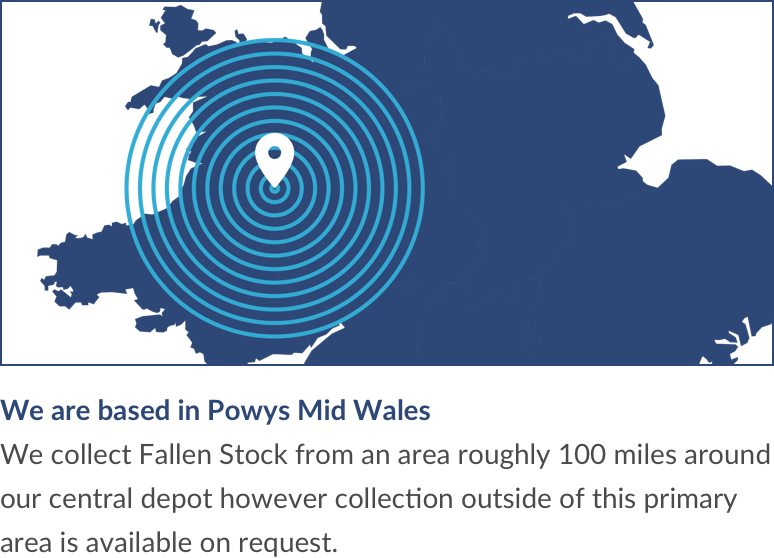Latest News From F M Caine
Updates and news about our stock collection

What to do if your flock catches Avian Flu
If you suspect a case of bird flu
Avian influenza spreads from bird to bird by direct contact, most often through faeces and bodily fluids. It can also be spread by contaminated feed and water. The virus is hardy and can also be transmitted by vehicles, clothing and footwear. Any suspected cases must be reported to DEFRA in England by telephoning 03000 200 301 or in Wales, contact 0300 303 8268.
DEFRA will visit you to confirm the case and if your flock is found to be infected, they will arrange for them to be euthanised.
Removal and ADR transportation of the birds
The culling and removal of birds is organised by DEFRA. As one of the only fallen stock collectors in the area with ADR drivers, we are often the first port of call. ADR is an acronym for the French Accord Dangereux Routier which is the ‘European Agreement concerning the International Carriage of Dangerous Goods by Road’. Having ADR trained drivers means that we are equipped to transport biohazardous material, such as infected carcasses and wastewater from clean downs. We can handle large loads exceeding hundreds of tonnes with our fleet of approved vehicles and containers.
When transporting culled flocks infected by bird flu, we are accompanied by the Animal and Plant Health Agency (APHA). They will follow us in convoy to the site of disposal to ensure that the load is properly quarantined, disposed of and equipment disinfected.
Initial clean down
Once the birds have been removed, Defra will organise preliminary cleansing and disinfection (C&D) of the areas inhabited by the infected birds including any equipment that has been used with or near them. Usually this is performed by APHA. At this time, restrictions will remain in place as it’s likely that the influenza virus will still be present on the farm. This Includes a 3km protection zone and 10km surveillance zone around the infected premises.
Secondary clean down
Following a drying out period after the initial clean down, a secondary clean will be carried out. This process involves cleansing, degreasing and disinfecting. A representative of the AHPA has to approve the work and may be present on site to offer guidance. It is important to carry out the secondary clean immediately following the initial C&D. This reduces viral load on the infected premises as well as reducing the risk of the disease spreading to other farms.
Anything that can’t be effectively disinfected should be safely disposed of. All faecal matter must be removed as the virus can persist at a high level in organic material.
Walls, floors and equipment should be cleansed with soap or detergent. Steam cleaning is then sometimes carried out before the application of disinfectant. Fumigation should be considered to kill the virus present in hard-to-reach areas.
The wash down water cannot be spread on farmland and must be collected in case the virus is still present.
Restocking
When the farm is clean and dry from the second C&D, samples will be taken and sent to an AHPA lab to determine if the virus is still present. Once it has been confirmed that there are no traces of avian influenza, it’s possible to re-stock. During the first 21 days, a veterinary examiner will check up on the flock to make sure that there are no sick chicks. Restrictions will remain in place until your new birds have been given the all clear, with any samples testing negative for bird flu.
We know how stressful it can be when it comes to managing livestock illness. If you need any support following a confirmed case of avian flu – or you’d like more information about our biosecure transport services, don’t hesitate to contact us on 01547 528654.

